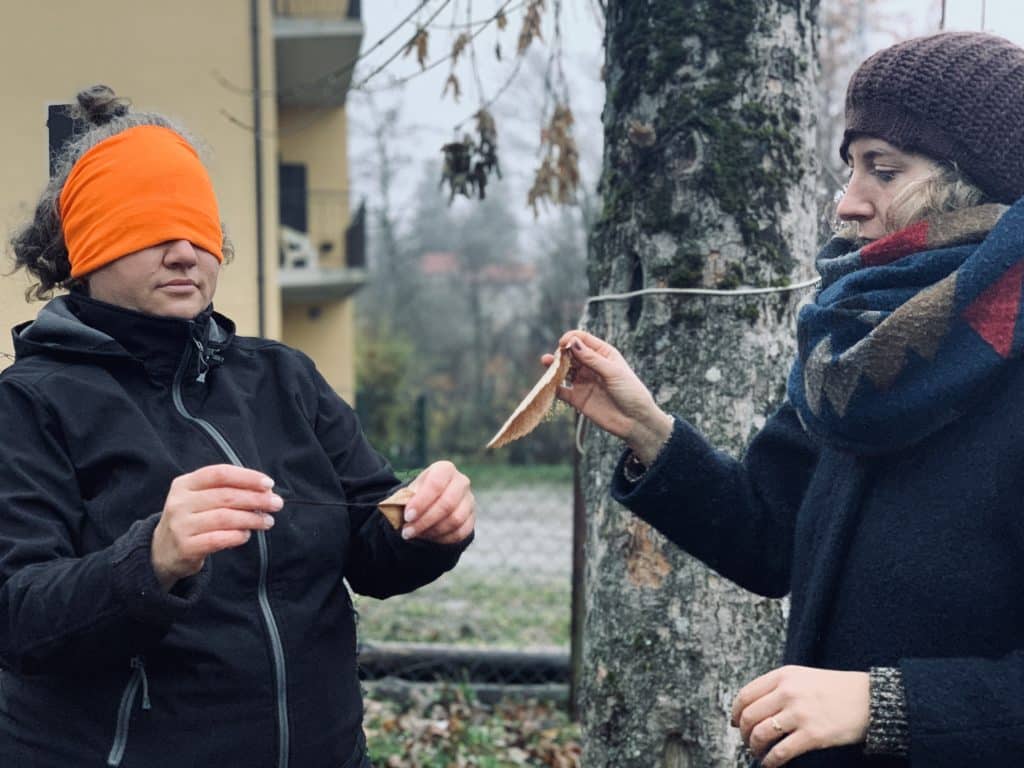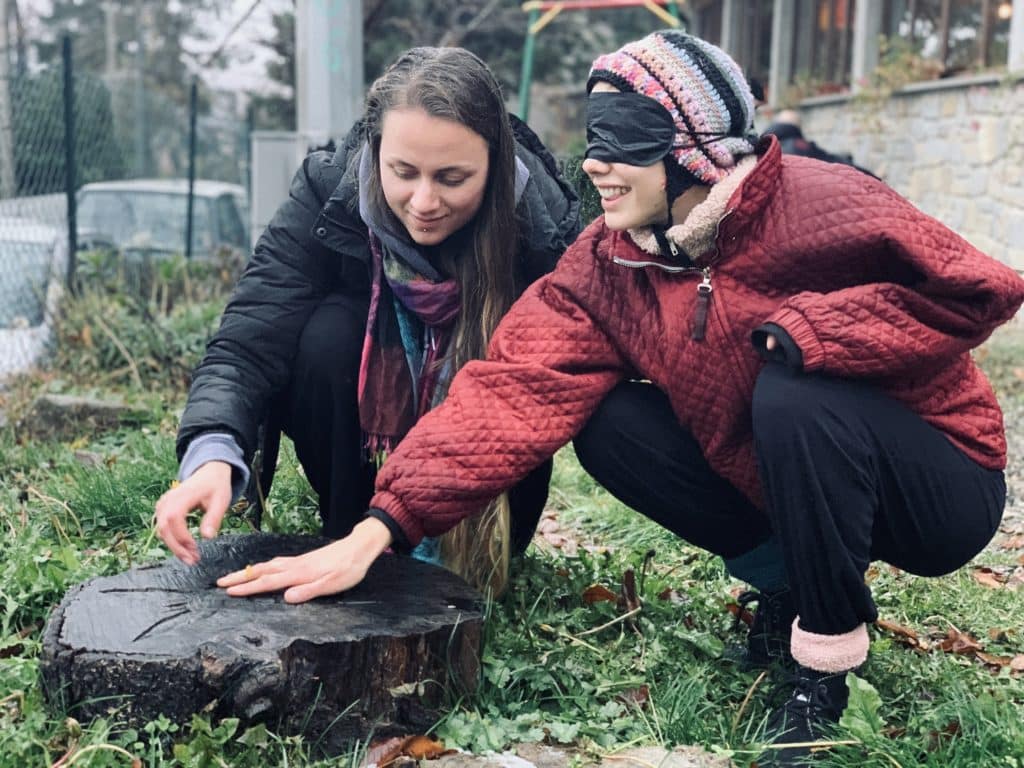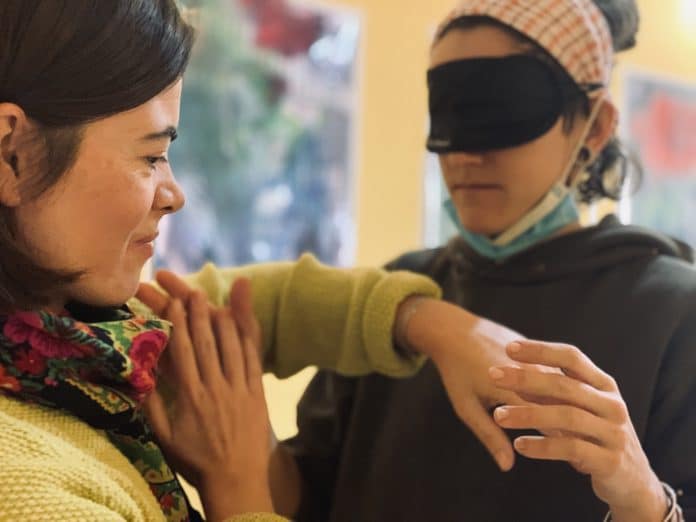BEYOND VISIBLE – An emotional journey with Sensory Labyrinth Theatre
The Project
“Beyond Visible” was an international training course organised by “No Borders Association“, financed by the European Union in the framework of Erasmus+. For one week, in the beautiful area of Casalino di Ligonchio, youth workers from 10 different countries were exploring the Sensory Labyrinth Theatre as a tool of connection, emotional awareness and community building.
The Sensory Labyrinth Theatre
Sensory Labyrinth Theatre is a kind of immersive theatre used to develop trust, awareness, empathy and connection. It was created by Iwan Brioc as an applied theatre methodology with therapeutic potential, inspired by Vargas ‘Poetics of the senses’.

“SLT ramps up the inherent but suppressed sensitivity of human sensory perception and the suppressed capacity of luminosity inherent in everyday experience. Individual audience members journey alone through a darkened three-dimensional labyrinth and along the way encounter moments and meetings that provoke subconscious sensory memories (sensory portals) into which they are gently invited to fall. In accepting this invitation constructs such as time and space, me and you, the inner and the outer start to collapse. Framed for the audience as ‘theatre,’ this space also takes on the added dimensions of the aesthetic space – memory, and imagination: so that consciousness and this conditioned process of construction we call ‘reality’ can become an observable phenomenon – observed by the ‘character’ of the traveller in the performance.”
Project’s Purpose
One of the aims of SLT is to awaken the senses beyond the dominant five senses we use in everyday life, in particular our overwhelming reliance on sight. Research suggests that we in fact have many more senses, and SLT attempts to draw out this awareness. It also aims to develop deep trust and connection, as the traveller in the performance is guided blindfolded by the group of performers, who seek to look after that person and be totally present and caring as they guide them.
There can be many participants in sensory labyrinth theatre. The complexity of creating the labyrinth and delicacy of the performance may be better suited to adults, but could also be done with young people. Adults who experienced childhood trauma may also find therapeutic and healing potential in experiencing the Labyrinth and rebuilding this trust and experience of nurture and care. The more participants involved, the more sensory portals the Labyrinth can have.
How To Use The Sensory Theatre
Participants ‘performing’ the labyrinth should spend some time in the creation process, considering what narrative, message, journey or sensory experiences they would like to give to their audience. The audience member will be guided blindfolded through the multi-dimensional labyrinth one at a time, guided through different sensory portals. These portals could take the traveller through different senses of touch, smell, sound, taste, or explore the traveller’s other senses of distance, time, balance, intuition, and dive deep into emotions or memories.

The Labyrinth can be created with any found materials and tools. Everything that surrounds us is multi-sensory, we just need to awaken our awareness to see the multi sensory potential in all things. It is good to have a couple of people stationed on each sensory portal, because timing the Labyrinth can require some improvisation if a traveller moves faster or slower through the labyrinth than expected.
Elements of different disciplines can be brought together in sensory labyrinth theatre, such as contact improvisation, dance, music, singing, sound baths etc. Also elements of sensory labyrinth theatre can be taken and used for shorter activities, such as a sensory labyrinth walk through nature that invites people to awaken their senses.
The labyrinths are site-specific events that can be co-created with the community in order to build trust and connection but also to revisit local places and discover what is beyond visible.
Read also
Project Results: “Inner Bridge: From Self Awareness To Self Expression”




